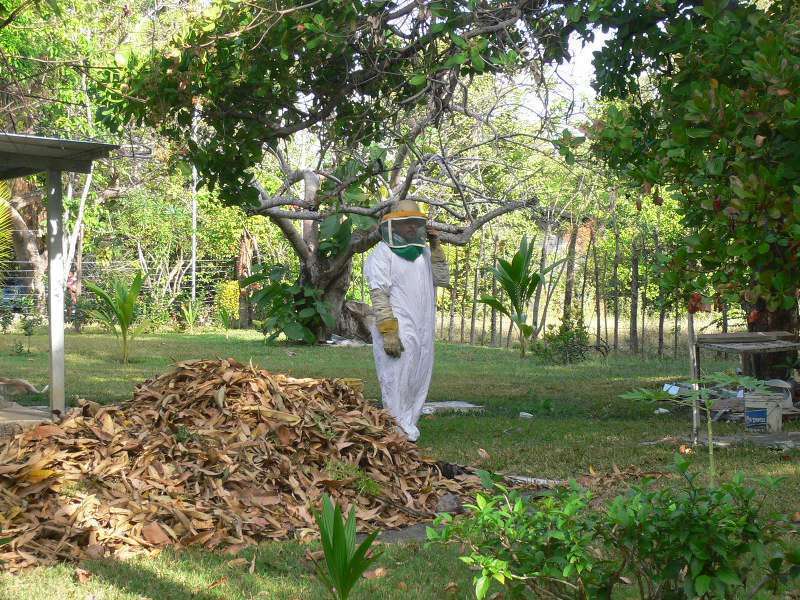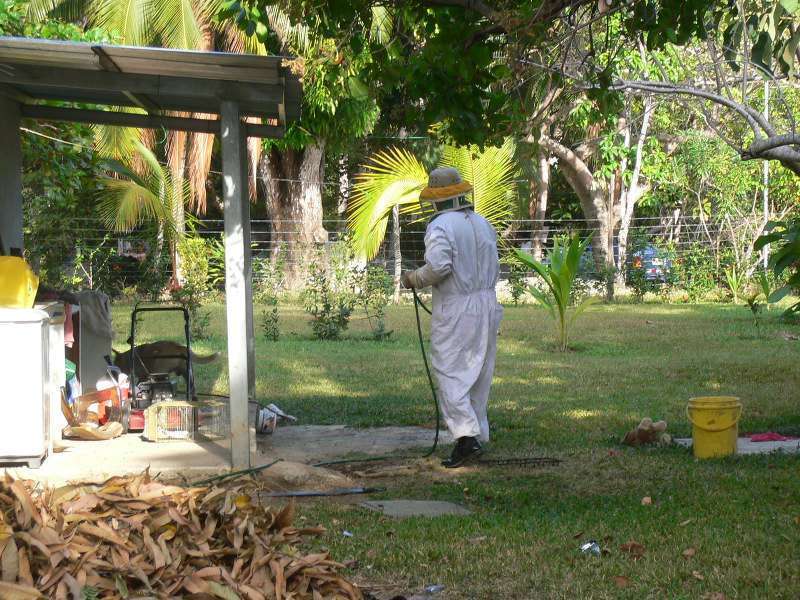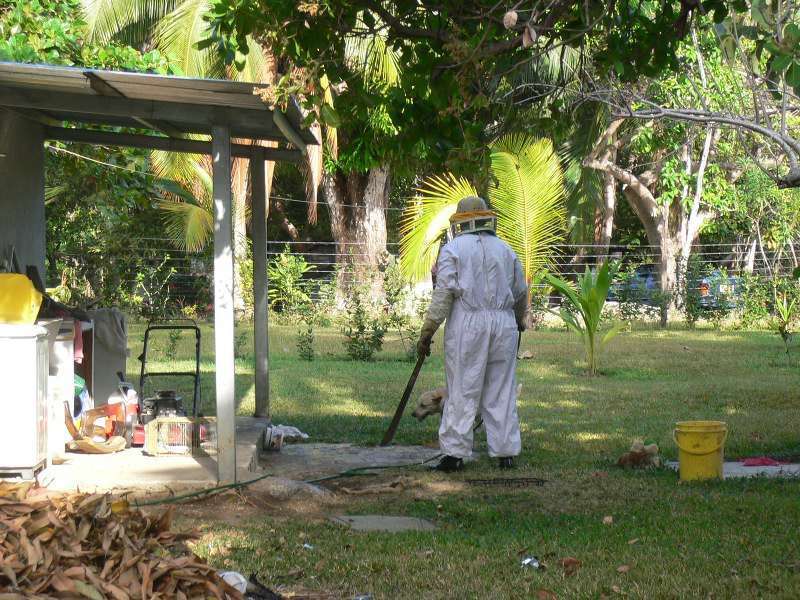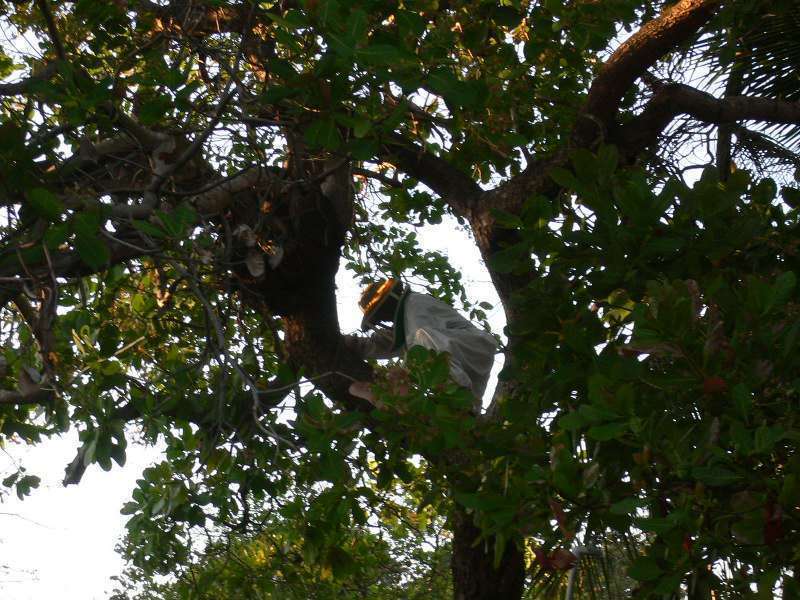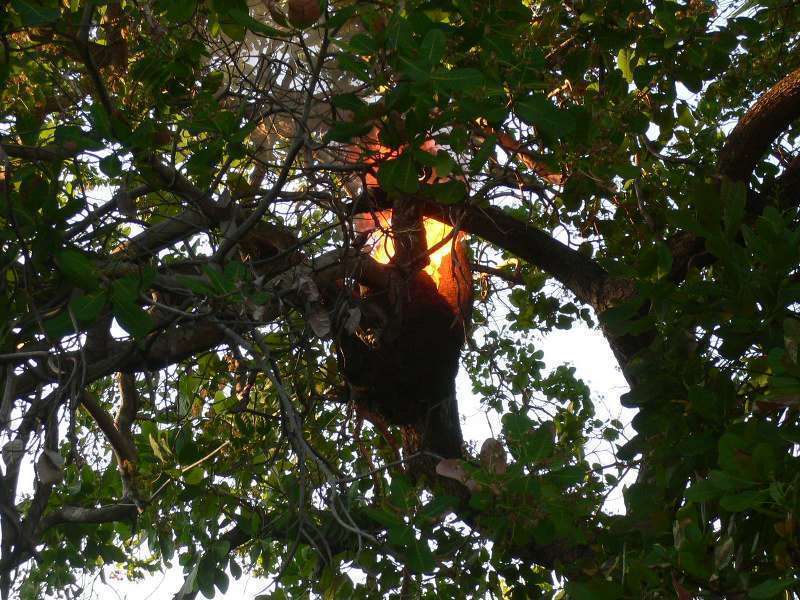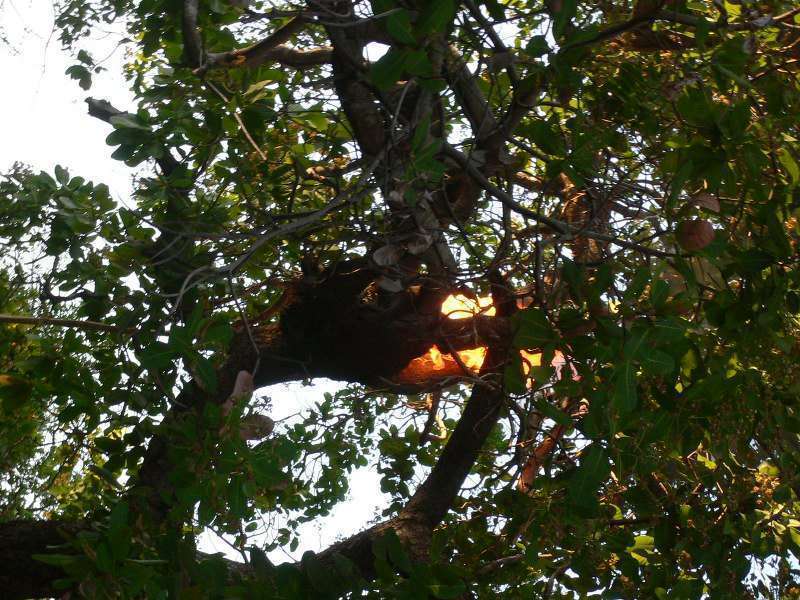Africanized Honey Bees Attack Dogs

{mosgooglecenter} {mosimage}(Las Lajas, Panama) A group of Africanized Honey Bees, also called Killer Beers, nesting in an empty termite’s nest, attacked a pair of dogs, yesterday in Las Lajas. The bees were agitated by children playing in the area. The local Bomberos (Fire Department) were called in to deal with the dangerous situation of the bee colony. The nest was located and burned. Unfortunately the dogs died from the stings. African Honey Bees are known for their aggressive and defensive behavior. Un-treated, their sting could cause anaphylactic shock, resulting in death. In 1956, African honey bees were imported from Tanzania to Brazil as a way to increase honey production. It was thought that by cross-breeding the African honey bees, a bee could be produced that would thrive in the tropics, but with the more docile nature. Unfortunately, the experiment was unsuccessful. The resulting hybrid bees, retained all the aggressive behaviors of the African honey bee. The hybrid was labeled, Africanized Honey Bees. The bees have since spread through Central American and into the United States. WHAT CAUSES KILLER BEES TO ATTACK?
{mosimage} Africanized bees react to disturbance around the hive. They can stay angry for days after being disturbed. If one bee stings, it releases a pheromone that causes the other bees to become agitated and sting. The Africanized Bee, like the honey bee, dies when it stings. The tiny barbs on the stinger remains stuck in the victim.
An extremely aggressive Africanized bee colony may attack any 'threat' within 100 ft. and pursue for up to one-fourth a mile. When Africanized bees attack, they generally attack the face and ankles. They attack only when the colony is threatened. Loud noises, strong odors or fragrances, shiny jewelry, and dark clothes are perceived as threats.
WHAT SHOULD YOU DO IF ATTACKED?
- Run. Africanized bees are slow fliers and most healthy people can out run them.
- Run in a straight line, protecting your face.
- Avoid other people, or they too will be attacked.
- Do not try and hide underwater. The Africanized bee swarm will wait for you to surface.
- Seek medical attention. Some people are allergic to bee stings causing anaphylactic shock. Since Africanized bees attack and sting in great numbers, it is possible that an allergic response may be triggered.
Photos and story by Vicente Guzmán

